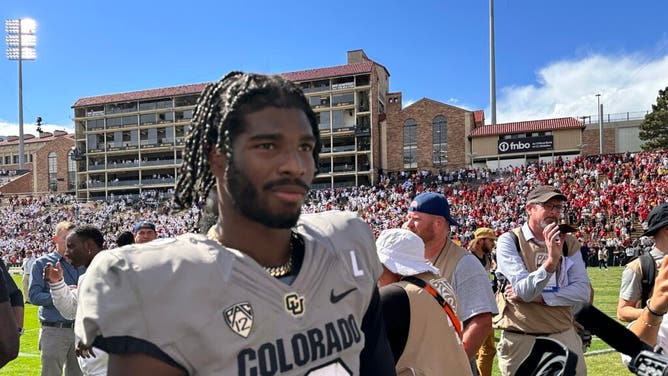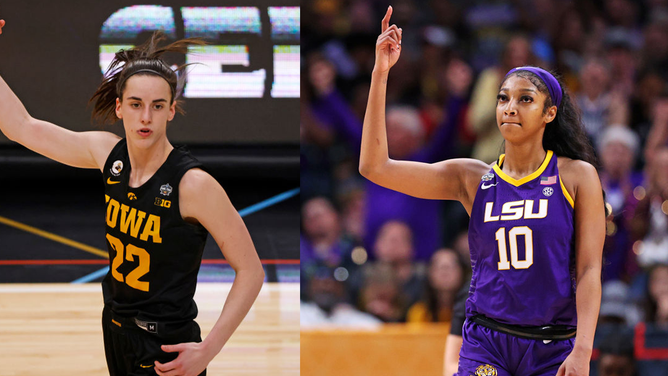SEC Distributes $741 Million, So Don't Tell Players There's No Room For Revenue Sharing | Trey Wallace
The annual infusion of cash to SEC athletic departments has come, and each of the 14 schools are waiting patiently for the check to clear and their bank account notifications to alert them to another massive payday.
After taking a slight hit in the 2022 fiscal year, the SEC will be dividing up $741 million between its member institutions. That's an average of $51.3 million per school. These new deposits come after the SEC reportedly made $802 million in 2022, but I'd imagine folks outside Big Ten country are not feeling bad for arguably one of the best conferences in college football.
The ones who should feel slighted are the players who entertain us on the football field, basketball court, baseball and softball diamonds. Everyday there is a new argument being made over how players should be getting a cut of the pie. Sure, football and basketball are drawing the most eyes, but let's not act like we haven't been entertained by what we've seen across other sports in the past year.
But one of the bigger problems that schools are having right now involves NIL, which has been the most talked about subject in college spots over the past three years. Currently, the NCAA and member institutions are trying to solve a problem that would make Oppenheimer blush.
How do we figure out a solution that makes both the players and universities happy?
"It's interesting, I had multiple players this last recruiting cycle ask me when the day will come that they would receive some type of royalties from television revenue," one prominent NIL agent told OutKick. "Obviously they are not negotiating their NIL contracts for future earnings from television deals, but the questions are starting to be asked on a more frequent basis.
"If you've got a player that is the central focus of an ESPN or FOX broadcast, there's going to come a time down the road when these athletes are going to want some of that revenue. After all we've seen related to NIL over the past three years, that feels like the next shoe to drop. Some schools are recognizing that and trying to find different ways to incorporate a player's likeness into a broadcast."

Colorado QB Shedeur Sanders after the USC loss
At the end of the day, these athletes are not oblivious to the money being made by schools across the country from lucrative television and marketing deals. In the long-term, having a player be classified as an employee of a school could lead to heated conversations about how these athletes can get a piece of the revenue.
"Look at what Caitlin Clark is doing for women's basketball, or someone like Angel Reese," the NIL agent said. "There's a reason why FOX has decided to broadcast her game on the network this Sunday. Either it was just perfect timing, or the network knew they could profit off folks glued to their televisions for Super Bowl Sunday. If there's no Caitlin and Iowa basketball, FOX isn't putting that type of game on the main network as a lead-in to the biggest football game of the year.
"Besides Clark, have a glance at the attention LSU and South Carolina women's basketball is getting on ESPN. Sure, it's Dawn Staley and Kim Mulkey, but the players are driving this attention. If you want an easy example, look at all the reporters who gained from Angel Reese stepping away earlier in the season. The network built it up, and websites gained clicks by generating stories about the situation. So let's not act as if these players don't deserve a cut."
SEC And Big Ten Are About To Fatten Their Bank Accounts With New Deals
The long awaited shift in college football coverage is finally upon us, with the SEC and Big Ten cashing-in on new television agreements this summer. Now that the SEC has fulfilled its obligations to CBS, who were pretty much robbing the conference with that antiquated television contract, the shift to ESPN is upon us.
According to a report from USA Today, the SEC could make around $1 billion in revenue over the 2024-25 fiscal year. It certainly helps that Texas and Oklahoma are joining the conference, which will only increase revenue, with a contract that starts with ESPN on Sept. 1, 2024.
After the Big Ten announced their seven-year, $8 billion contract with FOX, NBC and CBS in 2022, we finally got to see what the product looked like on the field this past season. Sure, it was awkward seeing Big Ten games on CBS, but the conference is profiting from the three-network deal that has them making more than the SEC in their new ESPN deal.
And while all of this is nothing new to the sports world, it's the ongoing conversations around NIL that could potentially change the game for student-athletes. We know congress likes to showboat and act as if they want to get involved in the ongoing debate surrounding NIL, but it's nothing more than a publicity stunt to this point, especially with an election around the corner.

So save me from the nonsense of congress members doing this for the players, while they push their narrative on Capitol Hill. The NCAA is stuck between a rock and a hard place, and they're praying that congress is smart enough to help facilitate a way to navigate NIL discussions.
I've got news for you. Most of the folks in Washington couldn't care less about if a student-athlete is getting a cut of the check, it's all for show.
So, as we continue to hear about all these different ways athletes can benefit from NIL and how this has turned into the ‘Wild West’, these conferences will continue cashing giant checks from television networks.
Good luck to those continuing to say these students shouldn't be cashing their own checks from their likeness, as they watch them on CBS, ESPN, NBC and FOX, all while websites continue to manufacture drama to drive up their click numbers.
Just give them a cut, there's enough money to go around.